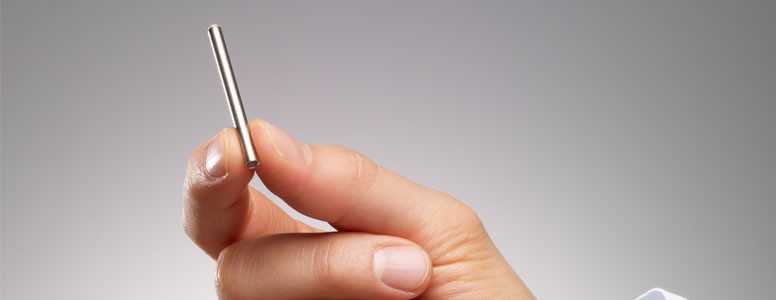Intarcia Therapeutics, an American pharmaceutical company based in Bosto, recently announced that its New Drug Application (NDA) for ITCA 650 has been accepted for filing by the US Food and Drug Administration (FDA).
The ITCA 650 is a potential once-a-year type 2 diabetes treatment Intarcia has been developing since 2012. It consists of a matchstick-size device delivering exenatide continuously via a minipump system (DUROS) placed under the skin in the abdomen.
Exenatide, commercialised by AstraZeneca under the trade names Byetta and Bydureo, is a glucagon-like peptide-1 (GLP-1) agonist which, when taken twice-daily or once-weekly, works by increasing insulin secretion and suppressing glucagon release.
Intarcia is seeking FDA approval for the ITCA 650 minipump, replaceable every six months, as an early treatment option alongside metformin use in type 2 diabetes.
The acceptance of the NDA filing means that the ITCA 650 system meets the FDA’s legal requirements for eligibility as a new type 2 diabetes therapy. The treatment method will now have to go through a second more substantive FDA review for earning that status.
The NDA application is supported by results from the 52-week FREEDOM-2 trial in 535 adults with type 2 diabetes taking metformin.
The findings, presented at a meeting of the American Diabetes Association in June last year, showed ITCA 650 produced better blood glucose control and more weight loss than Januvia (sitagliptin) over 52 weeks.
Aside from the positive HbA1c results, the ITCA 650 minipump met targets set out in a previous three-year FREEDOM cardiovascular outcome trial, which measured risks for heart attacks, strokes, and chest pain associated with ITCA 650.
In the heart safety study, involving more than 4,000 participants, ITCA 650 was found to be “non-inferior” to placebo – meaning that it didn’t worsen heart health. Whether it actually improves heart health is yet to be determined.
What we know is the probability of major adverse cardiac events (MACE) in that trial did not reportedly surpass certain thresholds deemed dangerous.
These results weighed heavily in the FDA’s ultimate decision to grant pre-approval, allowing Intarcia to submit ITCA 650 for further review. If it does pass the review process, ITCA 650 could become commercially available by the end of 2017.
Image credit: Intarcia Therapeutics.
What's new on the forum? ⭐️
Get our free newsletters
Stay up to date with the latest news, research and breakthroughs.




